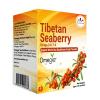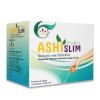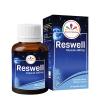 Throughout our lives it is important that we eat a balanced diet. A balanced diet is one that gets most of its energy from carbohydrates with few servings of protein and at least 5 portions of fruits and vegetables per day from the age of five years old. The nutrients in our food provide energy, promote growth and development and regulates our body functions. Our body depends on these nutrients throughout our lives as it is unable to produce sufficient amount on its own.
Throughout our lives it is important that we eat a balanced diet. A balanced diet is one that gets most of its energy from carbohydrates with few servings of protein and at least 5 portions of fruits and vegetables per day from the age of five years old. The nutrients in our food provide energy, promote growth and development and regulates our body functions. Our body depends on these nutrients throughout our lives as it is unable to produce sufficient amount on its own.
The six groups of nutrients – carbohydrates, proteins, fats and oils (also known as lipids), vitamins, minerals and water all work together to provide good nutrition to enable us to achieve optimal health. Each nutrient performs a specific function and if any one if them is missing from our diet, our body are at disadvantage.
Nutrition For Toddlers
Toddlers of age between 1 to 4 years old are totally reliant on being fed the right amounts of nutrients in the food and drinks. At this stage in their lives, food and nutrients are the building block that help to form strong bones, muscles, teeth and healthy organs and tissues. Time spent planning a toddler’s diet will reap rewards as they grow older into strong, healthy children, teenagers and then adults.
A healthy diet will also prevent them from becoming ill too often. They will also recover more quickly from the usual upset stomachs and colds. The key nutrients, what they are important for and where to find them are as follows:
| Nutrient | Important For | Where To Find Them? |
|---|---|---|
| Iron | Making red blood cells and carrying oxygen | Meat (beef, pork, lamb), bread, eggs |
| Calcium | Strong bones, teeth, blood clotting and nerves | Fortified cereals, green leafy vegetables, beans |
| Vitamin A | Skin, hair, membranes | Yellow and orange fruits and vegetables, liver, dairy products, green vegetables |
| Vitamin C | Cartilage and muscle, immune system | Citrus fruits, berries, potatoes, fruit juice, vegetables (not overcooked) |
| Vitamin D | Bones, teeth, heart and nervous system | Oily fish (salmon, tuna, mackerel, sardine), dairy products |
Children aged 5 to 12 years
Children have much more freedom over the food they choose to consume or not as they grow older. Not only do they eat outside from home, from the parental influence, there is also peer pressure and advertising to be considered. Children within this age group grows slower than in early infancy. However, they still have high nutritional needs but small appetites so it is essential that all their meals are nutrient dense and they are not filling up on sugary or salty snacks
One of the major concerns today is the level of obesity among this age group as they do less activity and eat the wrong types of food. Healthy children need to eat food which has lots of energy in their diet and they also need to be active. If they are overweight, they still need a nutrient dense diet so that they can grow and develop. The best way of losing excess weight is by healthy eating and increased amount of exercise.
Iron and calcium are especially important at this stage to keep the red blood cells healthy and to help bones develop robustly. Breakfast is essential if children are to have sufficient energy throughout the morning. A healthy breakfast provides essential nutrients and also improves concentration in the morning.
Children at this age tend to love burgers and fries! It is fine that they eat these occasionally but not all the time. The main thing is that children must eat a variety of food which are nutrient dense and balance. Remember, everything in moderation including moderation!
| Food Group | Important For | Where To Find Them? |
|---|---|---|
| Starchy carbohydrate (plenty of these) |
Energy, fiber, vitamins and minerals | Bread, cereal, oat, pasta, rice and potatoe |
| Fruits and vegetables (3-5 portions a day) |
Vitamins and minerals, fiber | All fruits and vegetable (fresh, dried or frozen) |
| Milk and dairy products (Daily) |
Protein and carbohydrate | Milk, yoghurt, cheese |
| Meat and fish (2 portions a day) |
Protein, iron, vitamins and minerals | Red meat, poultry, liver, eggs, nuts and seeds |
| Fatty and sugary food (not very often and in small quantities) |
energy (calories) | Butter, chocolate, cake, ice cream |








What Vitamins to need for Kidney, Liver, Heart and Lung
Thank You.